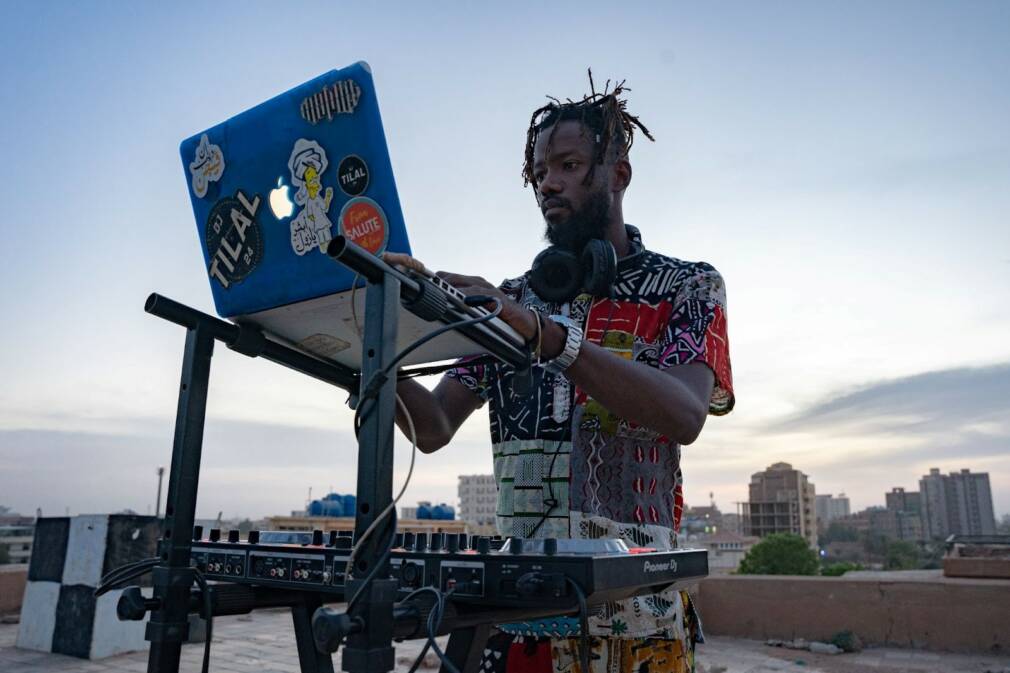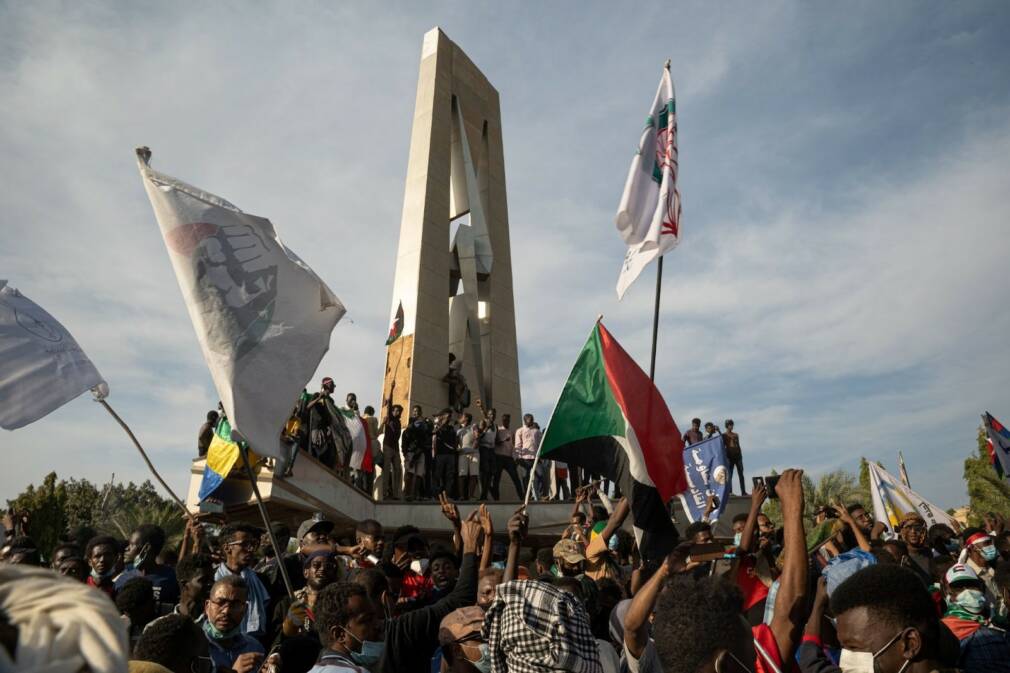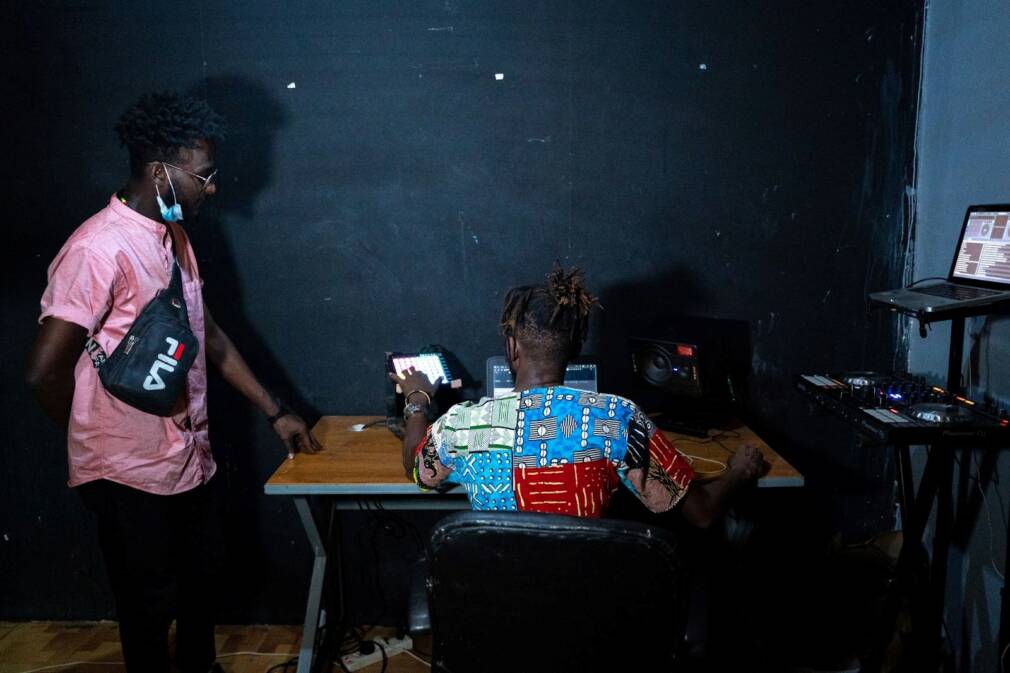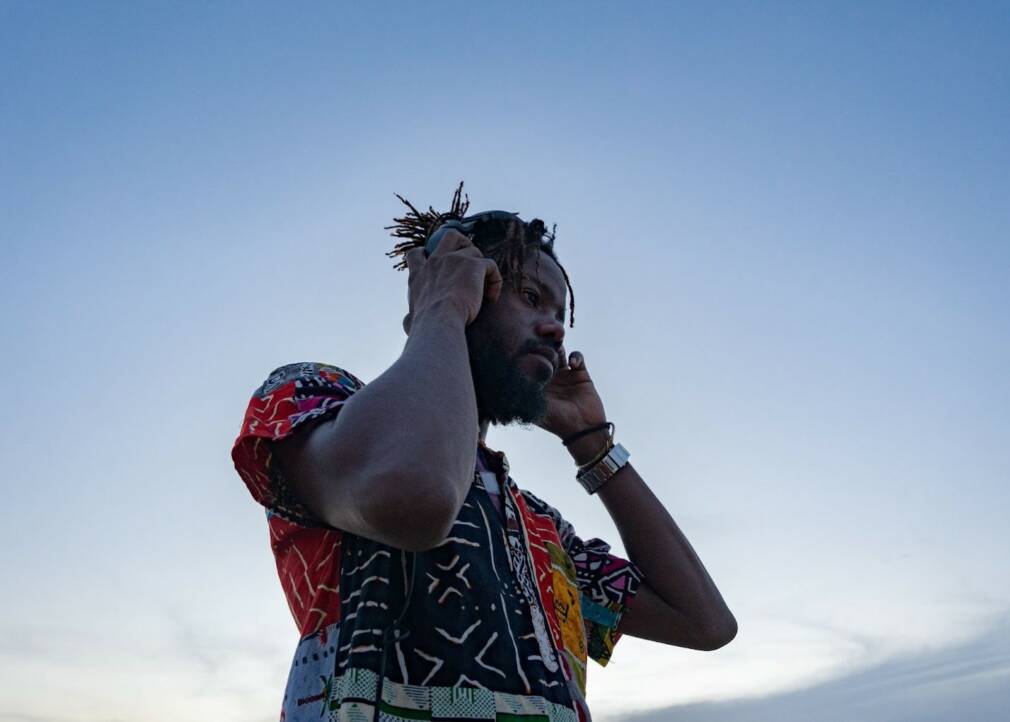Tilal picks up his turntables and the rest of his equipment before climbing the ladder to the roof of his building near Khartoum airport. Night is falling on the Sudanese capital. As he sets up, the call of the muezzin resonates in the setting sun, blending in with the cars honking their horns down below. “This is where I do my live sets; with the view of Khartoum it’s perfect », says the 32-year-old DJ. He is preparing for an evening of Afrobeat that he has organized a few days from now in the south of the capital, on the banks of the blue Nile.
But given the country’s unstable political environment, this kind of event could be canceled at the last minute. “Since the October 25 military coup it has become difficult for us to organize events. For several weeks we didn’t have an internet connection, the social networks were cut off and we didn’t feel like partying when our friends were being killed on the streets.” The army, which had seized power on October 25, 2021, put an end to the period of political transition that Sudan was experiencing since the revolution of 2019. Tilal, like many other Sudanese, wasn’t expecting this turn of events, because the country had been trying to rebuild after 30 years of Islamic-military dictatorship under Omar al-Bashir’s regime. Even if this turnaround has been a blow to the hopes for freedom which young Sudanese people have been dreaming of for so long, he remains optimistic. “With the revolution, we have discovered freedom and we have dreamed. Even if the army takes power, there is no going back.”
The call of music

To be a DJ in Sudan is not the easiest way to succeed, especially when, like Tilal, you’re born in 1989, the year Omar al-Bashir seized power. During his thirty-year reign the country no longer played a role on the international cultural stage.
On the roof of his building, Tilal points in the direction of the sun. It is over there, on the other side of the white Nile, in the historic quarter of Omdurman, that Tilal grew up and took his first musical steps. It was his uncle, a DJ in the United States, who initiated him in this art, bringing back to Sudan CDs of American R&B and rap. The young apprentice – he was fifteen – created his own musical repertoire by taping music from the radio on cassettes. Two years later, his uncle decided to return home, in order to create “Sudan Event”, a company dedicated to organizing evening parties and events in Khartoum. This time, he had come back with DJ equipment for his nephew : a turntable and a light & sound show. “It was impossible to find this equipment in Sudan at the time; with the American embargo you couldn’t find anything or it was too expensive and bad-quality”, explains Tilal. Along with his cousins, who were also involved in music, they began organizing their first events. Tilal was the youngest, he handled ticket sales before joining in the spotlight during the parties. “Under al-Bashir, it was very complicated to propose events with DJ’s. The sharia imposed by the Islamic regime only authorized traditional concerts or weddings.” Under the old regime these events were seen as occasions for debauchery and depravation contrary to Sudan’s Islamic culture. In order to circumvent this ban, they told the authorities that their parties were weddings. “We took a lot of risks because the police could arrive at any moment and stop us”, remembers Tilal. DJ’s are still not looked on so kindly by the Sudanese authorities. Tilal is fighting these prejudices so that his profession can be recognized as an art form. Along with other Sudanese DJ’s he wants to create a union in order to protect their image and to show the government that they aren’t a threat to public order.
The revolution, a breath of fresh air for Sudan’s music scene…

– Arthur Larie
When the revolution broke out in December 2018, Tilal was on the streets like the majority of young people, and participated in the sit-in which led to the fall of the regime. “Those were crucial days for me. It was the first time that we could see a new future for Sudan and that it was us, the young, who had the power to change our future.” Music played a key role during the protests, revolutionary chants could be heard on speakers everywhere and also inside the sit-in. Tilal evokes the moment he played for the demonstrators,- using his phone – a song by national icon Mohammed Wardi : “At that moment I really felt like a DJ because I was controlling the crowd’s emotions.“
A spirit of liberty was in the air in Khartoum at the end of the Islamic regime. “Before the revolution, there were only two or three parties on Thursday nights (the day before the public holiday in Muslim countries). After that, it went to ten or twelve, with everyone starting his own company.” This energized the music scene, and after so many years Tilal had made a name for himself, and is now considered one of the best DJ’s in the country. After the Revolution he started his own company in order to help younger musicians and to create a pool of DJ’s he can count on. “I want to help the Sudanese scene to evolve. With my experience, I can give advice to young people starting out, I’m trying to help them the most I can.“
A fragile music scene

The economic and political situation in Sudan is a major obstacle to the music scene. Rexus, a young producer who is making waves, meets Tilal in his studio. Surrounded by machines and computers, the two discuss the previous day’s incidents : December 19, the anniversary of the Revolution. In the early afternoon, a few meters from the studio, army pickup trucks had blocked the road to the airport. Tilal and Rexus and other friends joined more friends in the huge demonstration in front of the presidential palace. Live ammunition, deafening grenades and tear gas put an end to this new day of mobilization. No one was hurt, but the current situation is starting to weigh heavily on the two friends. Rexus says to Tilal : “Since the coup d’état, people take to the streets but they still continue to work ; but if artists like us organize events we will be criticized for not respecting the protestors. This situation is making things very hard for us.” On top of this they have to deal with the hassles of everyday life. Neither Tilal nor Rexus were able make music that day because of power cuts. “These are very basic things“, says Rexus, “that are difficult for foreigners to imagine, but the daily power cuts and the economic crisis effect us all. We can’t buy professional equipment because our money is worthless and you can’t find high-quality equipment in Khartoum.” Most of Rexus and Tilal’s equipment comes from Dubai, but with the current inflation rate in Sudan, it has become very difficult to buy equipment outside the country. “I worked really hard for several months just to be able to buy a controller”, explains Tilal. It is the same struggle to get access to good-quality music online. Tilal downloads his sounds from Youtube because purchasing platforms like “Beatport” or “BPM Supreme” are too expensive, and when he participates in live events, he is sometimes cut off because his tracks are bootlegged. All these problems have incited Tilal to try his luck in the Emirates. “Sudan is off the cultural map. I work hard here but I’m not gaining recognition because there is no place and no festivals where I can perform.”
Dubai, the Eldorado for DJ’s
Dubai has become, in the past few years, the epicenter of events in the region. “Everything is happening in Dubai now, it’s the perfect place if you want to become known, but the competition is tough.” Tilal went there for the first time in March 2020 to buy equipment for his studio, and was immediately seduced. “I felt that my home was here, that it was the place to make my dreams come true, to play festivals and to become a resident DJ in a club.” He went back to Sudan and decided to save money in order to return to the Emirates to take his chances. It came six months later, when he was chosen to perform at the Dubai Fashion Festival after sending his portfolio to Emirati promoters and clubs. But Covid put a stop to his project. After the festival was canceled he was forced to return to Sudan, a few days before he was to sign a contract with a club. Despite these obstacles, the Sudanese DJ is not discouraged. He has returned – once again – to the Emirates. But this time, he has promised himself, it will be the right time.




